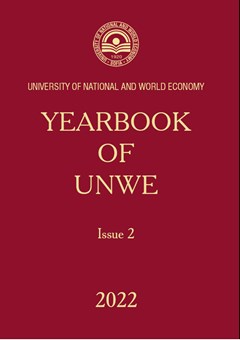The Effects of Democratization On Economy: The Case Study of the Western Balkans
Author: Galya Mancheva
Abstract
The present study aims at tracing the correlations between the foreign direct investments (FDIs) and the key interest rates (KIRs) broken through the prism of the democratization processes in the Western Balkans. The paper represents the extension of the previous author’s works dedicated on the region, and its challenges nowadays (Mancheva, 2015, 2016, 2018, 2019, 2021; Mancheva, Simeonova, 2019). The interest on the issue is driven by the ongoing European Union enlargement processes. It is trying to contribute by investigating economic growth via FDIs and KIRs trends in the context of the democratization of the region. Pearson’s bivariate correlation is used to track whether: (1) there is a statistically significant linear relationship between three continuous random variables – foreign direct investments, key interest rate and democratic rating, (2) the strength of the linear relationship between these variables and (3) the direction of this connection. The study includes the following countries: The Republic of Albania, the Republic of Serbia, the Republic of Northern Macedonia, the Republic of Montenegro and the Federation of Bosnia and Herzegovina. Republic of Kosovo and Republic of Slovenia are excluded from the study as Kosovo is still partially recognized and Slovenia is an EU member since 2004. A 10-year data period is covered, namely between 2010 and 2019. After the analysis, it was found that the democratization processes of the countries included in the study do not affect their economic growth, represented by FDIs and KIRs.
JEL: C01, C81, C87, O10, O40, P16

